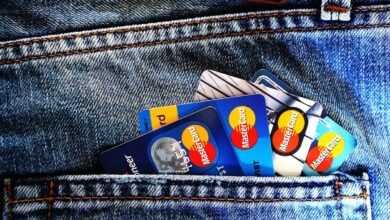
- 1. Start With a Goal
- 2. Open a High-Yield Savings Account
- 3. Improve Your Credit Score
- 4. Start Your Search
- 5. Optimize Your Taxes
If you are like many people, you may consider owning a home to be one of the most important things you want to achieve.
The process of finding and buying a home may feel overwhelming, but there are many resources available that can help you make that dream a reality.
Here are some practical tips on the financial aspects of affording a home, from saving up for a downpayment to finding the right financing option:
1. Start With a Goal
One of the first things to do is determine what your finances need to look like in order to afford the type of home you want.
Real estate prices and inventory vary greatly in different areas and throughout the year, so you may want to start keeping track of listings in the area you want to live. You should be able to get a sense of what your dream house will cost after looking at data over several weeks or months.
Once you have a general idea of the amount of money you’ll need to bring to the table for a down payment and registration costs, you can make a savings goal.
2. Open a High-Yield Savings Account
You may already have a savings account at the same bank that manages your checking account. However, it could be beneficial to open a high-yield savings account.
Or, switch to one of the online banks if need be in order to get those higher-yielding savings accounts. They may provide interest rates that are much higher than those of a standard savings account at a traditional bank.
Transfers in and out of these accounts may have certain restrictions, so make sure you know all the terms before signing up.
3. Improve Your Credit Score
Your credit score is extremely important, and it may be one of the most significant factors lenders use when determining what kind of mortgage terms to offer you.
A good place to start is by figuring out how to access your credit report. Once you have a copy, you can make sure there aren’t any errors on it that are negatively affecting your score.
There are several things you can do to help improve your score: reducing unsecured debt, paying bills on time, and utilizing only a small percentage of your available credit.
4. Start Your Search
Once you have the money for a down payment and are confident you can qualify for the mortgage you need, you can start looking for your dream home.
You may want to consider getting pre-approved by a lender before making an offer on a property.
A pre-approval can help ensure you aren’t taking on too much debt, that you’re able to afford a certain amount, and of course, show the sellers that you are a serious buyer.
5. Optimize Your Taxes
Your taxes may change slightly once you are a homeowner, but tax returns are important before you buy a house as well.
Many people miss out on deductions and other money-saving opportunities when they file their tax returns every year.
You may want to use a specialized tool such as crypto tax software to make sure your taxes are filed properly. Tax software programs may also help you get all the deductions you qualify for.
Buying a home can be the start of an exciting new phase in life. Before you make an offer, you can get your finances in shape by improving your credit score and saving for a down payment. Tools such as high-yield savings accounts and tax software can help you reach your financial goals.







very detailed view in each topic, Thank you so much!
You’re so welcome Nandi, glad you enjoyed it and found it useful!